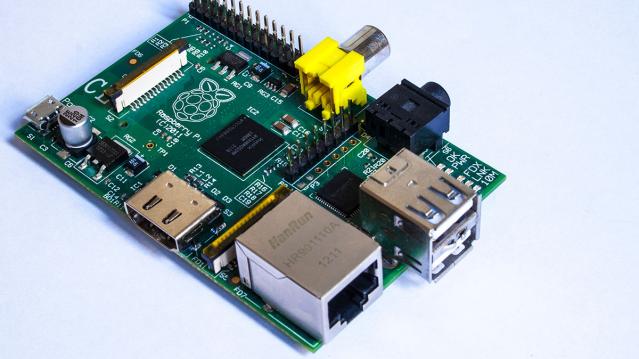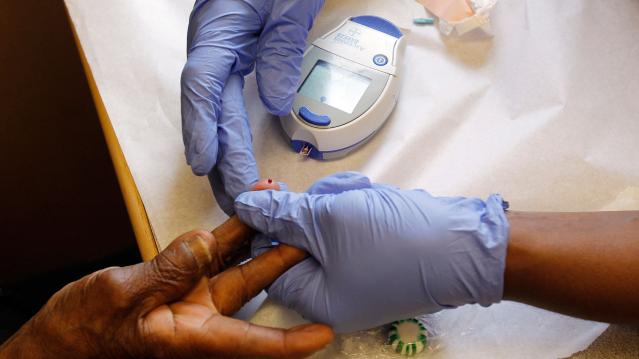How IBM Is Making Your Passwords Useless
For years, quantum computing has been hailed as a technology that could change the way the modern world works, but a long-standing technical issue has kept that potential from being realized. Now, in a paper published in the journal Nature last week, IBM scientists have taken a big step (see how I avoided the temptation to make a pun there?) toward solving that problem — and while it could represent progress toward making quatum computers real, it also could mean that current cybersecurity standards will soon be much easier to crack. In other words, your passwords could be obsolete soon.
The power of quantum computing has some obvious appeal: The increase in processing power could speed up research, especially in big data applications. Problems with large datasets, or those that need many millions (or billions, or more) of simulations to develop a working theory, would be able to be run at speeds unthinkable today. This could mean giant leaps forward in medical research, where enhanced simulations can be used to test cancer treatments or work on the development of new vaccines for ebola, HIV, malaria and the other diseases. High-level physics labs like CERN could use the extra power to increase our understanding of the way the universe at large works.
But the most immediate impact for the regular person would be in the way your private information is kept safe. Current encryption relies on massively large prime numbers to encode your sensitive information. Using combinations of large prime numbers means that anyone trying to crack such encryption needs to attempt to factor at least one of those numbers to get into encrypted data. When you buy something from, say, Amazon, the connection between your computer and Amazon is encrypted using that basic system (it's more complicated than that, but that's the rough summary). The time it would take a digital computer to calculate these factors is essentially past the heat death of the universe. (Still, this won't help you if your password is password, or monkey, or 123456. Please, people, use a password manager.)
Quantum computing, however, increases processing speed and the actual nature of the computation so significantly that it reduces that time to nearly nothing, making current encryption much less secure.
The IBM researcher that could make that happen is complicated, and it requires some background explanation. For starters, while a "traditional" computing bit can be either a 0 or a 1, a quantum computing bit can have three (or infinite, depending on how you want to interpret the concept) states. More specifically, a qubit can be 0, 1, or both.
 Up until now, the both part of that caused some problems in realizing the power of quantum computing.
Up until now, the both part of that caused some problems in realizing the power of quantum computing.
Apparently — and you'll have to take this on faith a bit, as it hurts my head to think about it — the both state can switch back to either 0 or 1 at any given point, and sometimes incorrectly, based on the logic in the programming. Think about when your phone freezes up for a second or two while you're matching tiles. This is its processor handling vast amounts of information and filtering out the operations that fail for any number of reasons, from buggy code to malware to basic electrical noise. When there are only the two binary states, this is a process that usually happens behind the scenes and quickly.
The hold-up with quantum computing up until now is that the vastly greater potential for errors has stymied attempts to identify and nullify them. One additional wrinkle in this reading quantum states is familiar to anyone with basic science fiction knowledge, or perhaps just the ailurophobics. What if the action of reading the qubit actually causes it to collapse to 0 or 1?
The very smart people at IBM think they've solved this. The actual technical explanation is involved, and well beyond my ability to fully follow, but the gist is that instead of just having the qubits arrayed in a lattice on their own, they are arranged such that neighbors essentially check each other, producing the ability to check the common read problems.
That opens the door to further quantum computing developments, including ones that will make your password a thing of the past. So, does this mean that you need to start hoarding gold? No, not yet. And hopefully before quantum computing reaches commercial, or even simply industrial/governmental levels, a better cyber security method will be in place. Or the robots will have already taken over. I for one welcome them.
This Computer Only Costs $9

It's smaller than a credit card yet powerful enough to act like a super cheap PC. How cheap? It costs less than $10.
C.H.I.P. is a micro-computer that allows you to surf the Web, check email over Wi-Fi and play games with a Bluetooth controller. The minicomputer—basically a chip that hooks up to an external monitor—has a 1 GHz processor, 4GBs of storage and 512MB of RAM, according to its Kickstarter page.
The Next Thing Co., a company based in Oakland, Calif., began a Kickstarter campaign for the C.H.I.P. computer in May with a funding goal of $50,000.
Related: 10 Biggest Tech Flops of the Century
It has since blown past that goal, and by a large factor. The campaign has brought in just under $690,000 and counting as of Monday morning. The fundraising campaign ends June 6.
The small computer is designed for a mass audience, including students, teachers, grandparents, children, artists, makers, hackers and inventors, according to its Kickstarter page.
Raspberry Pi is another full-functioning, no-frills computer. Like C.H.I.P., the Raspberry Pi is basically a computer chip that plugs into a computer monitor or TV. It costs $35 and uses a standard keyboard and mouse.
Raspberry Pi teaches users how to program in languages like Scratch and Python.
This article originally appeared on CNBC.
Read more from CNBC:
Reward checking accounts offer savers up to 5% APY
Has Krugman been proved wrong on austerity?
How the 2014 CNBC Disruptors cashed in
Craigslist Car Scams Are on the Rise, Especially in Midwest

An insurance group is warning consumers of a widespread scam in which fraudsters are buying cars on Craigslist with bogus checks.
The National Insurance Crime Bureau has identified nearly 100 instances throughout the Midwest of Craigslist car sales in which the buyers used fake bank checks.
“These scams are well organized and have all the appearances of being legitimate,” NCIB President and CEO Joe Wehrle said in a statement. “But in the end, the criminal gets the car and the sellers or their financial institutions are left on the hook for thousands of dollars still owed on the car.”
Related: A New Vicious Scam Targets Desperate Homeowners
The scam appears to be especially prevalent in states where vehicle owners retain the title despite an outstanding lien. NCIB, a nonprofit supported by the insurance industry, advises car sellers never to sign over the title until they have the money for the sale in hand, even if that means waiting a week or more for a check to clear.
Craigslist offers its own list of tips to avoid scams. Remember, the online marketplace offers no guarantees regarding items bought or sold via its site and little recourse if you are the victim of a scam.
The site’s No. 1 tip is to do all transactions in person. A growing number of police stations now offer dedicated space for people meeting in person for transactions they’ve agreed to online.
Those with information about insurance fraud or vehicle theft can anonymously report it by calling 800-835-6422 or texting keyword “fraud” to TIP411.
15 Restaurants Offering Free Food for Moms on Mother’s Day

Your Mom was the one who taught you to head straight for the clearance racks. Show her how much you've learned by taking her out for some deliciously cheap eats before taking a free garden tour.
Related: 10 Worst States for Working Mothers
Mother's Day Freebies 2015
- Beef O'Brady's: Free Meal with purchase of equal or greater value up to $10
- Billy Sims BBQ: Free Single Meat Sandwich, Side and Drink
- Brick House Tavern & Tap: Free Brunch Entree with Entree Purchase (reservations required)
- Chuck E. Cheese's: Free Individual Thin & Crispy Pizza with $29.99 purchase of Large 1 Topping Pizza, 4 Drinks & 30 Tokens (requires printable coupon, exp. 6/1)
- Corner Bakery: Free 6 Pack Bottoms Up Bundts with Entree Purchase (printable coupon, exp 5/11)
- Fogo de Chao: Free Lunch or Dinner on Next Visit for Moms who dine on Mother's Day
- Hooters: Free Meal with Drink Purchase (up to $10.99)
- Hurricane Grill & Wings: Free Dessert with Entree Purchase
- McCormick & Schmick's: Free Chocolate-Covered Strawberry with your order
- National Public Gardens Day: Free admission 5/8, with many activities continued through Mother's Day
- Orange Leaf: Free 8-oz. Froyo
- PDQ: Free Combo Meal with purchase of a Kids/Combo Meal
- Shoney's: Free Slice of Strawberry Pie with your order
- Spaghetti Warehouse: Free Strawberry Lemonade and Surprise Gift
- Tijuana Flats: Free Entree (must show offer to redeem)
As always, local participation may vary, so call ahead to check - and then make reservations if you can.
This article originally appeared in The Brad's Deals Blog.
Read more from The Brad's Deals Blog:
6 Things You Should Never Waste Your Money
37 Things You Should Always Keep in Your Car
Is Vision Insurance Worth it For You
This Disease Hikes Health Care Costs By More than $10,000 a Year

Medical professionals and economists have been worried about the growing prevalence of diabetes for years. A new report shows their concerns are well placed. In 2013, the per capita health care bills of consumers with diabetes was $15,000, nearly 71 percent ($10,700) higher than those without the disease, according to the Healthcare Cost Institute.
The brunt of those bills are borne by health care providers, but consumers with diabetes have per capita out-of-pocket costs of $1,922, compared to just $738 for those who do not have diabetes.
For those under the age of 65, health care expenses grew an average 4.1 percent from 2012 to 2013, but the increase was even higher among children, who saw expenses rise 7 percent from 2011 to 2012 and then another 9.6 percent from 2012 to 2013.
Related: Diabetes Detection Up in Pro-Obamacare States
“There has been extraordinary growth in health spending for children with diabetes,” HCCI senior research Amanda Frost said in a statement, citing branded insulin as one factor in the increase.
For children, the costs go beyond medication. A 2012 study in Health Affairs found that people who develop diabetes before age 30 make less money than their peers, are more likely to drop out of high school and less likely to attend college.
One of the most widespread chronic diseases in the United States, diabetes care consumes about 10 percent of U.S. health care spending, according to a study by the University of Michigan.
This College Choice Could Make You $3Million Richer

The differences in starting salaries for STEM majors versus those who study the humanities have been widely publicized. Now, a new study looks at how those differences add up over a lifetime of earnings – and the results are staggering.
The lowest paid graduates, early childhood education majors, earn just $39,000 annually mid-career, while the highest paid petroleum engineering majors, make an average of $136,000 per year. Over a career, that difference amounts to more than $3 million, according to the report The Economic Value of College Majors by economists at Georgetown University.
Among the major fields of study, architecture and engineering students earn highest average salary--$83,000 per year, and education majors earn the lowest--$45,000 per year.
Related: 10 Public Universities with the Worst Graduation Rates
The study finds that generally it’s still worth it to go to college. The average bachelor’s degree holder makes $1 million more over a lifetime than a person with just a high school diploma.
A separate report released last fall by the Federal Reserve Bank of New York found that the value of a bachelor’s degree has reached an all-time high of around $300,000. Researchers found that it takes about 10 years to recoup the cost of a degree, a historically low level, down from close to 25 years in the late 1970s and 1980s.
So those education majors should still go to college, but they might be smart to look for more moderately priced options and to be more wary about taking on debt than their engineering peers.
